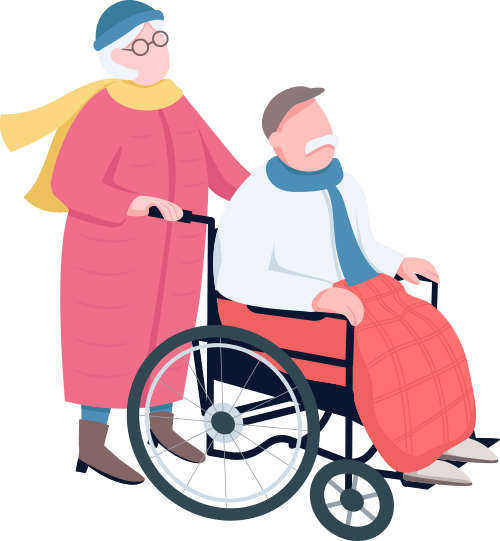Elderly
What to do if suffering from depression and anxiety?
What is geriatric depression and anxiety disorder?
Geriatric depression and anxiety disorder generally refer to the occurrence of depressive disorders and anxiety attacks in elderly individuals aged 60 and above, which is a relatively common mental disorder among the elderly population. The core symptoms of depressive disorders include low mood (feeling down), lack of pleasure (loss of appetite), decreased interest, and may also include sleep disturbances (insomnia) and cognitive decline (forgetfulness), among others.
Geriatric depression and anxiety disorders are often perceived as a part of elderly life and do not receive adequate recognition and diagnosis. It has been proven that geriatric depression and anxiety disorders are associated with poor quality of life, difficulties in daily life activities, physical comorbidities, premature death, and cognitive impairments, among other significant negative consequences.
Therefore, enhancing awareness of the manifestations of depression and anxiety in the elderly and managing them is crucial. Timely treatment is necessary as long as patients meet the clinical diagnostic criteria for depression and anxiety disorders.
Which elderly individuals are more prone to depression and anxiety?
The etiology of geriatric depression and anxiety disorders is complex and often accompanied by physical illnesses, with a potential bidirectional relationship between the two. For instance, late-life depression can increase the incidence of dementia; in populations with coronary heart disease and hypertension, the incidence of anxiety disorders accounts for nearly half. The susceptible groups to geriatric depression and anxiety disorders include:
1. Those lacking emotional support
2. Those experiencing negative events
3. Individuals with chronic illnesses
4. Long-term medication users
5. Individuals with personality traits of stubbornness
How to treat depression and anxiety in elderly individuals
For patients with geriatric depression and anxiety disorders, treatment mainly involves medication and psychotherapy. Medication prescriptions should be provided by specialist physicians, and most medications may require starting with low doses, gradually adjusting the dosage. After a period of medication intake, drugs should not be abruptly discontinued, and medication adjustments should be guided by specialist physicians and require regular follow-ups.
In terms of psychological intervention therapy, led by specialist physicians, the cooperation of patients and their families is essential. Treatment plans need to be practical, feasible, and flexible to best meet the needs of patients and caregivers.
Therefore, in formulating the initial psychological treatment plan, involvement of family members and patients is necessary, and continuous evaluation and updates may be required. As family members of patients, just like physicians, should stand on the front line of treatment, ensuring the following:
1. Pay attention to the psychological condition of the elderly, provide care and companionship without showing annoyance, rejection, dissatisfaction, or hostility towards the elderly.
2. Ensure proper nutrition intake and actively treat underlying physical illnesses; encourage patients to maintain regular routines, actively participate in recreational and group activities, such as chess, calligraphy, playing cards, etc.; increase the patient’s social interactions and enrich their lives.
3. Encourage and accompany patients in outdoor activities; moderate exercise is the most effective and natural “medicine” against depression. Treating elderly anxiety and depression requires the improvement and establishment of a multidisciplinary team care model for geriatric depression and anxiety disorders involving specialist physicians, primary healthcare workers, social workers, and family members to promote comprehensive functional recovery beyond the relief of clinical symptoms in elderly patients.
Other treatment methods
In addition to oral medications and psychotherapeutic treatments, there is a category of physical treatments, including electroconvulsive therapy, repetitive transcranial magnetic stimulation, vagus nerve stimulation, deep brain stimulation, and research-based treatments such as light therapy and sleep deprivation, among others. However, the above treatments have not yet obtained definitive research conclusions in elderly anxiety patients and require further research confirmation.
Currently, anxiety patients often employ ways to regulate mind and body, such as yoga, painting, dancing, music, and other art therapies, which have shown significant effects in relieving anxiety in elderly individuals.
Editor: Wu Baixin
Data source: Healthy China


